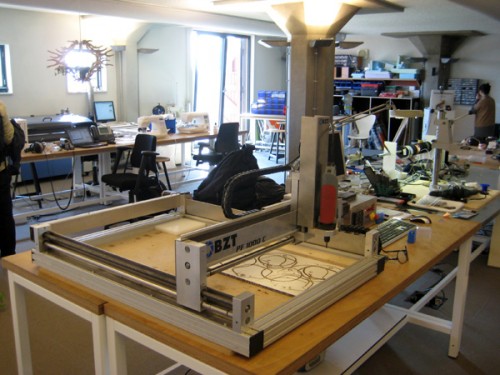- How to Adjust X and Y Axis Scale in Arduino Serial Plotter (No Extra Software Needed)Posted 2 months ago
- Elettronici Entusiasti: Inspiring Makers at Maker Faire Rome 2024Posted 2 months ago
- makeITcircular 2024 content launched – Part of Maker Faire Rome 2024Posted 5 months ago
- Application For Maker Faire Rome 2024: Deadline June 20thPosted 6 months ago
- Building a 3D Digital Clock with ArduinoPosted 11 months ago
- Creating a controller for Minecraft with realistic body movements using ArduinoPosted 12 months ago
- Snowflake with ArduinoPosted 12 months ago
- Holographic Christmas TreePosted 12 months ago
- Segstick: Build Your Own Self-Balancing Vehicle in Just 2 Days with ArduinoPosted 1 year ago
- ZSWatch: An Open-Source Smartwatch Project Based on the Zephyr Operating SystemPosted 1 year ago
Issue #5 of Journal of Peer Production looks into Shared Machine Shops such as Fablabs
A new and fundamental issue of Peer production journal now looks into the Makers and Fablab movement to assess its real potential.
The overall analysis it’s not without dark zones but I think it’s optimistic overall: Fabbers and makers all over the world and all the techshops, fablabs and makerspace around are a great promise of change and innovation but the movement must grow more and get more conscious of the potential.
Despite the marketing clangour of the “maker movement”, shared machine shops are currently “fringe phenomena” since they play a minor role in the production of wealth, knowledge, political consensus and the social organisation of life. Interestingly, however, they also prominently share the core transformations experienced in contemporary capitalism. The convergence of work, labour and other aspects of life — the rapid development of algorithmically driven technical systems and their intensifying role in social organisation — the practical and legitimation crisis of institutions, echoed by renewed attempts at self-organisation.
via Issue #5: Shared Machine Shops » Journal of Peer Production.
















